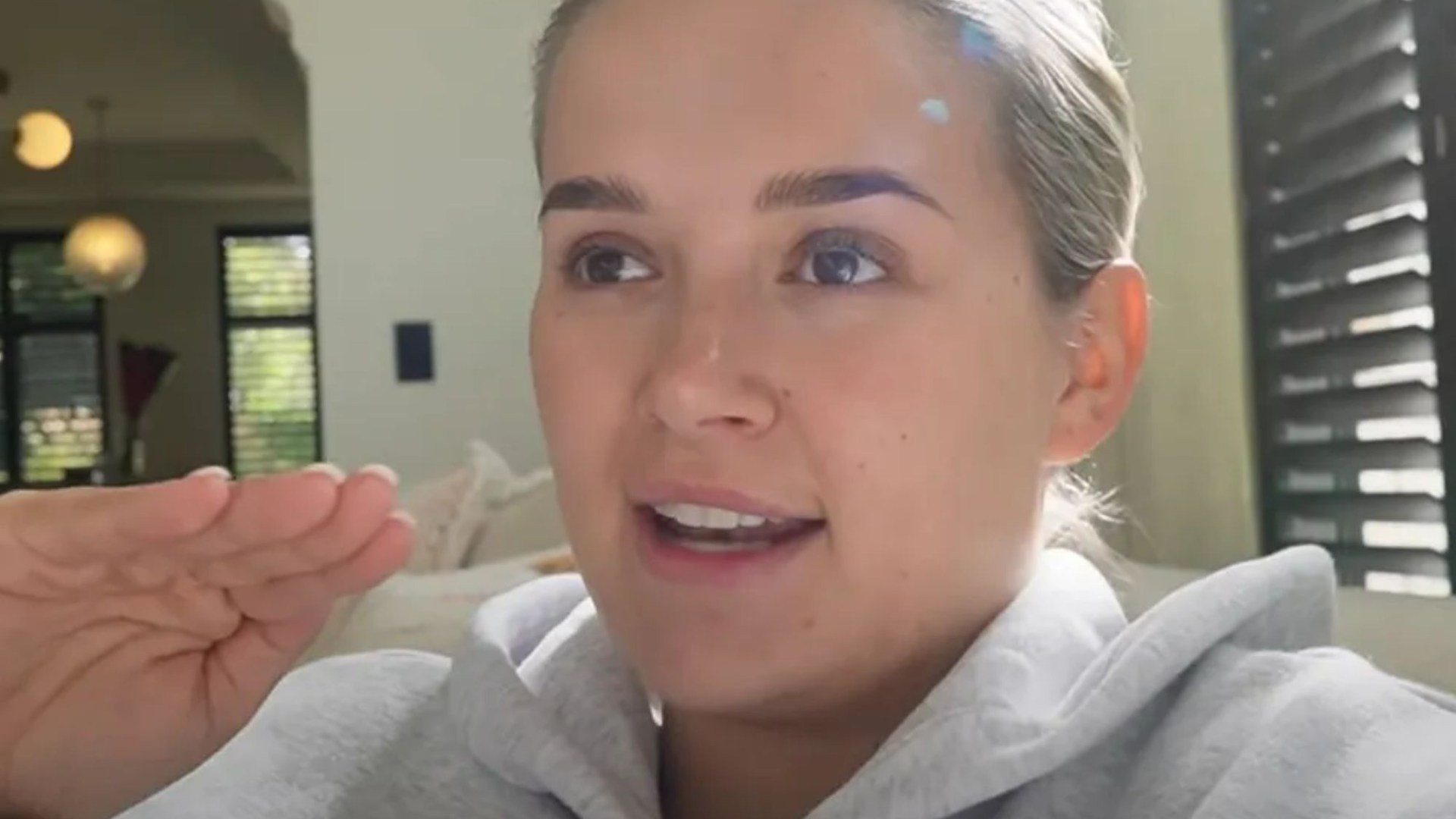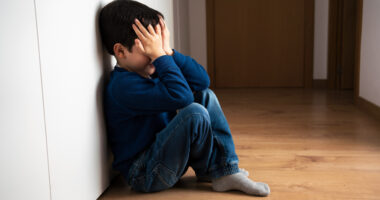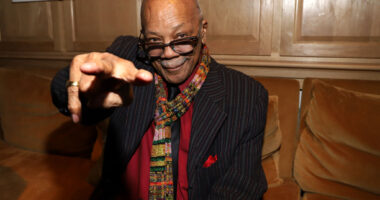It’s called birth order theory, which suggests that being the oldest, middle, youngest or only child in your family significantly impacts your personality. This, in turn, affects who you are most compatible with romantically. The #birthorderinrelationships hashtag has millions of posts on the social media platform TikTok, with users gushing about how the theory applies to them. “I’m the eldest daughter and all of my relationships have been with youngest sons,” exclaims one. “I’m the youngest and I’ve only ever gone out with people who are the eldest in their family,” declares another. William Cane, author of The Birth Order Book of Love, believes they are on to something. “It may not be the most important factor for compatibility, but birth order is definitely a factor in our choice of partner,” he says. “It affects our personality, and knowing the other person’s birth order can help us understand and deal with them, leading to a better relationship.” Birth order theory has been around for more than 100 years. In the early 1900s, Austrian psychologist Alfred Adler, a contemporary of Freud, first suggested that birth order defined our personality. Firstborns, for example, tended to be conscientious and liked to lead. “Middle children are more adaptable, shifting to suit the situation and the person they are interacting with,” says Cane. “And youngest children are often agreeable and easy-going.” Key personality traits Karen Molan, a self-development coach and chairperson of the Adlerian Network of Ireland, elaborates on the personality traits associated with birth order. “The oldest often grows up to be dominant, to know their own mind, and be fiercely organised, bordering on perfectionist,” she says. “They can also be really good at caring for and giving attention to others.” Middle children are often people watchers and peacemakers. “They also tend to be funny and social and throw the best parties,” says Molan. The traits of the family’s baby depend on how their parents and siblings treat them. “If they always have things done for them, they can become pampered and incapable,” says Molan. “But if they are given an opportunity to lead, they often step into that leadership role well because they have spent their lives watching everyone else doing things and learning from them.” As for only children, they can crave the spotlight as they are used to being the centre of attention. This early experience can make them needy, but growing up surrounded by adults can also make them more emotionally mature. While Adler may have identified specific personality traits with a person’s birth order, Molan is keen to point out that his theory was far more nuanced. “Adler believed birth order was a psychological position, not an ordinal one,” she says. “It’s all about how you and those around you interpret your position in the family. An eldest boy can often take on the traits of an only child if they receive preferential treatment. A girl born second may be put in charge of taking care of the others, and then take on the traits of an oldest child. From gender and size of families to blended families and outside influences, there are so many factors at play.” Research backs up the basic tenets of birth order theory. For example, a 2015 University of Illinois study looked at 377,000 high school students and concluded that first-borns tended to be more conscientious and willing to lead. Recipe for disaster? Research also shows that birth order theory can be extended to relationships. A Norwegian study looked at couples who married between 1980 and 2000 and found that marriages between two first-born children were most likely to end in divorce. “When you have two eldest, each one will want to be the leader, which is a recipe for conflict,” says Molan. “The marriages or long-term relationships that work best are usually between people with different birth order positions. An eldest who has bossy traits is better matched with a middle who is a good mediator.” When she works with clients, Molan uses birth order theory to inform her approach. “I get them to work out their birth order position and the associated traits that they are over and under-using as well as their core values,” she says. “People usually have lots of traits but only a handful of core values. When others tread on those values, they have their most serious arguments.” She gives the example of a couple who disagreed about their son. “He had skipped school and got caught, and even though the school had issued a punishment, the parents couldn’t stop arguing about it,” she says. “The wife thought it was serious, while the husband thought it was funny. When we dug deeper, we discovered that one of the wife’s core values was education, and one of the husband’s was also education. They were both bossy eldest children sticking to their guns because they were arguing from core values. But once they understood this, it made it easier for them to resolve their argument.” Social media concerns Relationship therapist and clinical sexologist Emily Power Smith isn’t as convinced of the relevance of birth order theory. “While Alder’s ideas around birth order are interesting, they were of a time,” she says. She acknowledges that birth order theory might have had more of an impact in the Ireland of old. “Irish parents used to treat their children differently depending on birth order,” she says. “The oldest boy got the farm, the girls were married off, and the youngest son became a priest. That adherence to birth order definitely impacted people’s choice of romantic partner.” But as society has changed, so too have parental attitudes. “In the past, I think there would have been a bigger difference in how a first-born girl would have been treated versus a first-born boy compared to how they might be treated today,” says Power Smith. “Gender roles, social status, education levels, and so on all play a part in parenting and how kids experience family life, and all have changed significantly since Adler’s time.” For example, Power Smith thinks parents are more likely to feel anxious about their parenting skills than previous generations. “So it’s not a given that their first-born learns confidence and becomes a leader,” she says. “It’s possible that they may experience the worst of their parents’ anxiety and live their lives worrying about all sorts of things.” Power Smith can understand the popularity of social media hashtags like #birthorderinrelationships. They seem to simplify the often messy business of finding love. But, ultimately, she believes they downplay the complexity of human interactions. “They pull the gaze from ourselves to the other, telling us the solution is external and not within us to resolve. That’s attractive because it’s less work for us, and we can blame something outside of ourselves for a relationship’s failure. This discourages personal growth.” Molan agrees with Power Smith that the social media interpretation of birth order theory is reductive and unhelpful. “There are some hilarious videos out there that capture people’s attention because they play on stereotypical traits,” she says. “But we shouldn’t let TikTok dictate how we date or interact in our relationships.” Instead, she suggests we use birth order theory to understand ourselves better. “Once you understand yourself and your personality traits, you should find it easier to recognise the traits that will balance you in a partner, irrespective of their birth order or yours,” she says. “Gaining insight into yourself and how you relate to others will help you navigate the arguments of life.” Made to order Author William Cane explains how our birth order can impact our love life. In his book, The Birth Order Book of Love, he outlines how firstborns like to be in the driver’s seat in their romantic relationships. They are best matched with younger siblings but can get along with other first-borns, provided they both understand that they are likely to get annoyed when the other tries to boss them around. He argues that middle children can form stable and happy relationships with a more varied group of people than any other birth order. Because of their adaptable personalities and peace-making tendencies, they can have long-lasting romantic relationships with eldest children, youngest children and other middle children. The baby of the family is often an easy-going character, with an observant nature and a more diverse range of interests than their older siblings. Typically, they match well with first-borns as they respond well to receiving direction and guidance. They can also benefit from a firstborn’s tendency to be organised. According to Cane, when a family has an only son, he tends to be career-driven, and his most successful romantic unions are often with a firstborn. By contrast, an only daughter frequently prioritises romantic and family relationships over her career. Again, the best match is with a firstborn. However, there is one caveat. Cane believes that an only daughter learns more about interacting with men from her mother than other girls. So, her mother’s birth order affects who she matches with. For example, if her mother is a firstborn, she is likely to be compatible with a youngest child and vice versa.
Subscribe
Login
0 Comments





